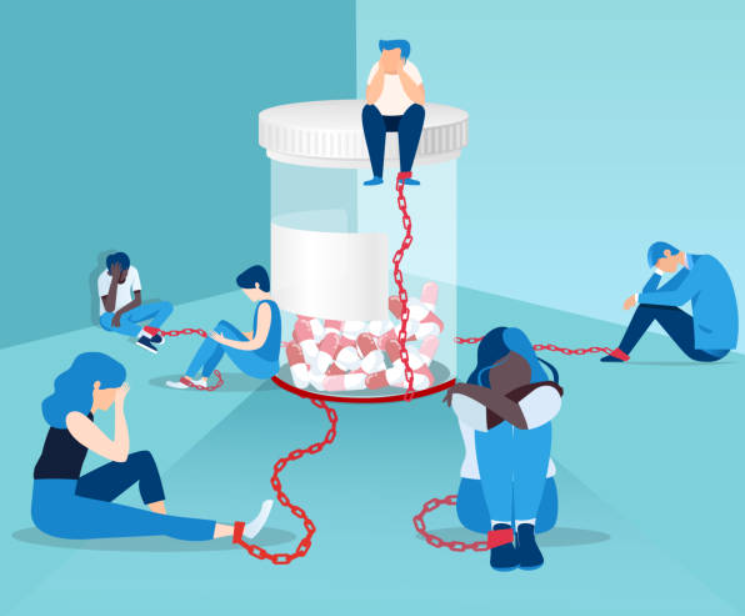Overview of the Charges Against Richard Ellison
In a notable legal development, the Department of Justice (DOJ) has filed criminal charges against Richard Ellison, the former CEO of PharmaCorp. This announcement was made on a Sunday, as the DOJ seeks to hold accountable individuals within the pharmaceutical industry who played a role in exacerbating the opioid crisis in the United States. The charges against Ellison include conspiracy, wire fraud, and violations of the Controlled Substances Act—serious allegations that convey the government’s commitment to addressing corporate malpractice in the healthcare sector.
The Allegations: A Closer Look
According to prosecutors, Ellison is accused of masterminding a scheme that aimed to saturate the market with highly addictive opioid medications. Under his leadership, PharmaCorp allegedly engaged in aggressive marketing campaigns that promoted these drugs for various conditions, despite the lack of medical necessity for many of these prescriptions. Such practices not only downplayed the risks associated with opioid use but also contributed significantly to the dependency and addiction crisis facing communities across the nation.
The opioid epidemic is widely recognized as a public health crisis that has claimed hundreds of thousands of lives across the United States. The DOJ’s allegations against Ellison suggest that the company prioritized profit margins over the well-being of patients, directing marketing efforts that encouraged the overprescription of opioids.
The Role of the DOJ in Addressing the Opioid Epidemic
Attorney General Merrick Garland remarked that the case against Ellison serves as a stark reminder of the damage that can result when corporate entities prioritize profits over people’s health. The DOJ, along with various state and federal agencies, has been increasingly focusing on corporate accountability as a way to combat the opioid crisis. This approach involves not only targeting large pharmaceutical companies but also those individuals who initiate and promote harmful practices that put profit above public safety.
The actions taken by the DOJ reflect a growing recognition of the systemic issues within the pharmaceutical industry that have contributed to the opioid epidemic. By pursuing charges against individuals like Ellison, the DOJ aims to send a strong message of deterrence to other corporate leaders.
Potential Consequences for Ellison
If convicted, Richard Ellison could face severe penalties, including decades behind bars and significant financial repercussions. The potential sentence is indicative of the seriousness with which the judicial system regards the role of corporate leadership in societal health crises. It underscores the principle that those at the helm of decision-making must be held accountable for their actions, especially in industries that affect public health.
Criminal cases such as this are rare, highlighting the DOJ’s commitment to addressing the opioid epidemic through prosecution. Such legal actions could prompt other executives in the pharmaceutical industry to adhere to ethical practices, knowing that the consequences of harmful business decisions could lead to criminal charges.
The Broader Context of Corporate Accountability
Ellison’s legal battles are emblematic of a larger movement towards corporate accountability in American industries. Stakeholders—including government officials, advocacy groups, and the general public—are increasingly calling upon corporations to act responsibly, with an emphasis on ethical conduct rather than profit maximization. This shift reflects broader societal concerns about the role of corporations in public health crises and the need for regulatory frameworks that discourage harmful practices.
The emphasis on corporate accountability ties into ongoing discussions about transparency and ethics in advertising, especially when it comes to medications that have profound effects on human health. As cases like Ellison’s unfold, they illuminate the need for continued vigilance and regulatory oversight in the pharmaceutical industry.
The Future of the Opioid Crisis and Legal Reforms
The series of lawsuits and prosecutions related to the opioid epidemic suggests a potential turning point in how pharmaceutical companies are monitored and held accountable for their actions. Legal reforms may emerge as part of a comprehensive response strategy to the crisis. These could involve tighter regulations on marketing practices, stricter penalties for unethical behavior, and greater support for addiction treatment and prevention programs.
Ongoing legal developments and reform initiatives could also lead to more discussions about the ethical responsibilities of pharmaceutical companies in their roles as providers of healthcare solutions. The outcome of the Ellison case will likely have far-reaching implications for how similar cases are handled in the future.
Conclusion
The charges against Richard Ellison represent a significant effort by U.S. authorities to address the root causes of the opioid crisis by pursuing accountability among corporate leaders in the pharmaceutical sector. With potential consequences that include lengthy prison sentences and substantial financial penalties, the case underscores the importance of corporate responsibility in the healthcare industry. As the nation continues grappling with the aftermath of the opioid epidemic, the outcome of such high-profile legal challenges will play a crucial role in shaping policy and ethical standards for pharmaceutical companies moving forward.
FAQs
What is Richard Ellison accused of?
Richard Ellison, the former CEO of PharmaCorp, is accused of orchestrating a scheme to flood the market with addictive opioids while downplaying their risks, leading to charges of conspiracy, wire fraud, and violations of the Controlled Substances Act.
What are the potential penalties Richard Ellison could face if convicted?
If convicted, Richard Ellison could face several decades in prison and significant financial penalties.
Why is this case significant?
This case is significant as it highlights corporate accountability in the pharmaceutical industry and aims to address the factors contributing to the opioid epidemic, which has resulted in hundreds of thousands of deaths.
What role does the Department of Justice play in the opioid crisis?
The Department of Justice actively pursues legal actions against individuals and companies within the pharmaceutical sector, aiming to hold them accountable for practices that exacerbate the opioid crisis and jeopardize public health.
How could this case affect future pharmaceutical practices?
The outcome of this case may set a precedent for how similar cases are treated and could lead to reforms in regulations, encouraging pharmaceutical companies to prioritize ethical practices and patient health.

